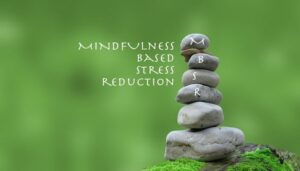Existential depression is a unique form of depression that can be difficult to overcome. If you are struggling with existential depression, know that you are not alone. There are many people who suffer from this condition every day. In this article, we will discuss the causes of existential depression and provide a step-by-step guide on therapy for existential depression.
Contents
What Is Existential Depression?
 Existential depression is a type of depression that arises from feelings of meaninglessness and purposelessness. It can result from a person’s interpretation of their experiences in life. As well as difficulty dealing with existential questions such as “Why am I here?” or “What is the point of my existence?” These questions can be overwhelming and lead to a sense of alienation, hopelessness, and despair.
Existential depression is a type of depression that arises from feelings of meaninglessness and purposelessness. It can result from a person’s interpretation of their experiences in life. As well as difficulty dealing with existential questions such as “Why am I here?” or “What is the point of my existence?” These questions can be overwhelming and lead to a sense of alienation, hopelessness, and despair.
The causes of existential depression are complex and varied. They can include feelings of isolation, a lack of purpose or identity, traumatic life experiences, emptiness, dissatisfaction with life, and confronting one’s mortality.
Existential depression is more than just sadness, it is a deeper emotion rooted in the feeling that our lives have no real significance. This can cause intense feelings of emptiness and hopelessness that are difficult to cope with. People with existential depression may feel overwhelmed by their own existence, feeling like life is not worth living.
Is Therapy For Existential Therapy Helpful?
In many cases, yes, existential therapy can be helpful. It can provide individuals with a sense of direction and purpose in life. As well as help them to find meaning and value in life’s experiences. This type of therapy focuses on the individual’s experience of life and relationships between individuals and their environments.
This type of therapy encourages people to explore the meaning and purpose of their lives, gaining insight into how they interact with their environment. Through this process, individuals may be better able to develop a more positive outlook on life and relationships. Moreover, existential therapy can often bring clarity to difficult situations and help the individual make important decisions in life.
So, be sure to consider therapy for existential therapy if you are feeling lost, confused, or unable to make sense of your life. This therapy can help you gain a greater understanding of yourself and your experiences and provide direction and purpose in life.
What Are Some Best Therapy For Existential Depression?
 There are a variety of therapy options available for those suffering from existential depression. The type or combination of therapies chosen will depend on the individual and the severity of their symptoms. Here are different therapy options that can help people dealing with existential depression:
There are a variety of therapy options available for those suffering from existential depression. The type or combination of therapies chosen will depend on the individual and the severity of their symptoms. Here are different therapy options that can help people dealing with existential depression:
Cognitive Behavioral Therapy (CBT
The very first and most known form of therapy used for existential depression is Cognitive Behavioral Therapy. CBT focuses on how thoughts and behaviors affect emotions, which can be especially useful when treating a condition like existential depression. It helps people become aware of negative thought patterns that lead to unpleasant feelings, such as hopelessness or despair. So they can learn to challenge and replace them with more balanced, realistic thoughts.
Interpersonal Therapy (IPT)
Interpersonal Therapy is a type of psychotherapy that focuses on relationships and how they impact mental health. It helps people better understand their interactions with other people and how those dynamics may be contributing to their distress or despair. IPT also teaches interpersonal skills such as communication, problem-solving, and boundary setting.
Psychodynamic Therapy
Another popular form of therapy for existential depression is psychodynamic therapy. This type of treatment focuses on understanding the underlying cause of psychological distress, such as unresolved trauma or conflicts. By helping people identify and understand their unconscious thoughts, feelings, and behaviors, they can learn to make positive changes in their lives.
Solution-Focused Therapy
It is a type of therapy focused on the present and the future instead of the past. It is used to help people identify their goals and develop strategies to reach them. While paying less attention to the causes of their distress or despair. This approach can be especially helpful for those suffering from existential depression since it focuses on how they want to live in the future, rather than trying to make sense of their past.
Mindfulness-Based Stress Reduction (MBSR)
 A mindfulness-based stress reduction is a form of therapy that combines aspects of mindful meditation with cognitive behavioral strategies. This type of therapy encourages people to be aware of their thoughts, feelings, and physical sensations in the present moment without judgment. It helps them be more mindful of themselves, their environment, and how they interact with it. This can lead to greater insight into behaviors and emotions and provide a sense of control over difficult situations.
A mindfulness-based stress reduction is a form of therapy that combines aspects of mindful meditation with cognitive behavioral strategies. This type of therapy encourages people to be aware of their thoughts, feelings, and physical sensations in the present moment without judgment. It helps them be more mindful of themselves, their environment, and how they interact with it. This can lead to greater insight into behaviors and emotions and provide a sense of control over difficult situations.
Mindfulness Meditation
Mindfulness meditation is another overlooked treatment for existential depression. It involves sitting in a comfortable position and focusing on the breath without judgment or attachment. This practice helps people become aware of their thoughts, feelings, and bodily sensations in the present moment. It can help reduce stress, anxiety, and depression while increasing self-awareness and insight into difficult emotions.
Guided Imagery
Finally, guided imagery is a type of therapy that uses visual images to help people manage emotions and distress. It can be used to create peaceful mental pictures or scenarios that evoke positive feelings and reduce negative thoughts and behaviors. This type of therapy can be especially helpful for those suffering from existential depression since it helps them explore their inner world in a safe and non-judgmental way.
All in all, there are many effective treatments for existential depression. The most important thing is to find the right type of therapy that works best for you and your particular situation. With the right combination of therapies, anyone can manage their emotional distress and lead a more fulfilling life.
How Many Sessions Are Required For Existential Depression?
If you are considering therapy for existential depression, it is important to have realistic expectations about the process. While some individuals may find a resolution to their issues with just a few sessions, others might require weeks or months before they start noticing positive changes. It is also important to remember that it will take time for any progress to be achieved and that relapse can sometimes occur.
The number of sessions required for existential depression can vary based on the individual and their particular struggles. People with more severe forms of the disorder may require longer-term psychotherapy to adequately address their issues. Those who are just beginning to experience symptoms may benefit from brief intervention strategies. Such as frequent check-ins, lifestyle adjustments, and cognitive restructuring techniques.
Usually, the session may start with a comprehensive assessment of the patient and their situation. The therapist will ask questions about the individual’s symptoms, experiences, and goals for therapy. This allows them to create a personalized treatment plan tailored to the individual’s needs.
What Are The Benefits Of Therapy For Existential Depression?
 The following are some of the benefits of therapy for existential depression:
The following are some of the benefits of therapy for existential depression:
1. Improved self-awareness: Through therapies such as psychotherapy and cognitive-behavioral therapy, individuals can gain insight into how their thoughts, feelings, and behaviors influence their experience of life. This new awareness will help them better understand themselves. And ultimately allowing them to make healthier choices that promote growth and happiness.
2. Improved coping skills: Existential depression can leave individuals feeling lost, confused, and overwhelmed by their life circumstances. Through therapy, individuals can learn new coping techniques to effectively manage difficult emotions and stress. These coping strategies will help them stay better grounded in the present moment. And find ways of nurturing themselves during times of distress.
3. Re-evaluation of values and beliefs: This benefit of therapy for existential depression allows individuals to examine their values and beliefs about life. This process can help them identify what matters most to their lives, as well as what is negatively impacting them. Ultimately, discovering a sense of purpose that will bring more meaning and satisfaction.
4. Increased insight into past experiences: Through therapeutic conversations and reflection, individuals can gain greater insight into how the past has shaped their present. This awareness can be incredibly helpful for improving their ability to make healthier decisions in the future.
5. Improved interpersonal relationships: Finally, this type of depression can leave individuals feeling disconnected and alone, making it difficult to form meaningful connections with others. Through therapy, individuals learn new skills that will help them build strong, healthy relationships. And find a sense of community and support in their lives.
Therapy for existential depression can be a powerful tool for helping individuals gain insight into themselves, cope with difficult experiences, and form meaningful connections. Overall, allowing them to lead more fulfilling and purposeful lives.
Conclusion
In conclusion, therapy for existential depression is a complex and multifaceted approach that requires the help of both a therapist. And the patient to work towards positive psychological and behavioral changes. Existential depression is challenging to treat due to the very nature of its underlying issues. But with the right team in place, it can be effectively treated.
Research into treatment for existential depression has shown promising results through a combination of psychotherapeutic techniques. It is important to remember that the success of any treatment depends on both the patient’s willingness to work with their therapist and the therapist’s ability to provide guidance along the way.
Depression is a mental illness characterized by persistent feelings of sadness, hopelessness, and loss of interest in daily activities. If you have any queries regarding Online Depression Counseling experienced therapists at MantraCare can help: Book a trial Depression Therapy session


